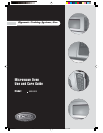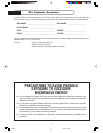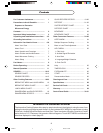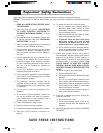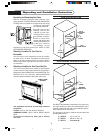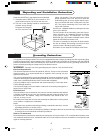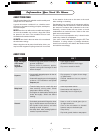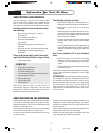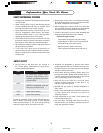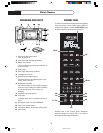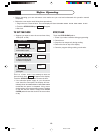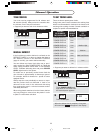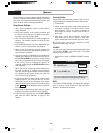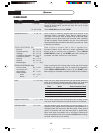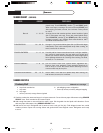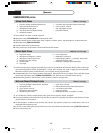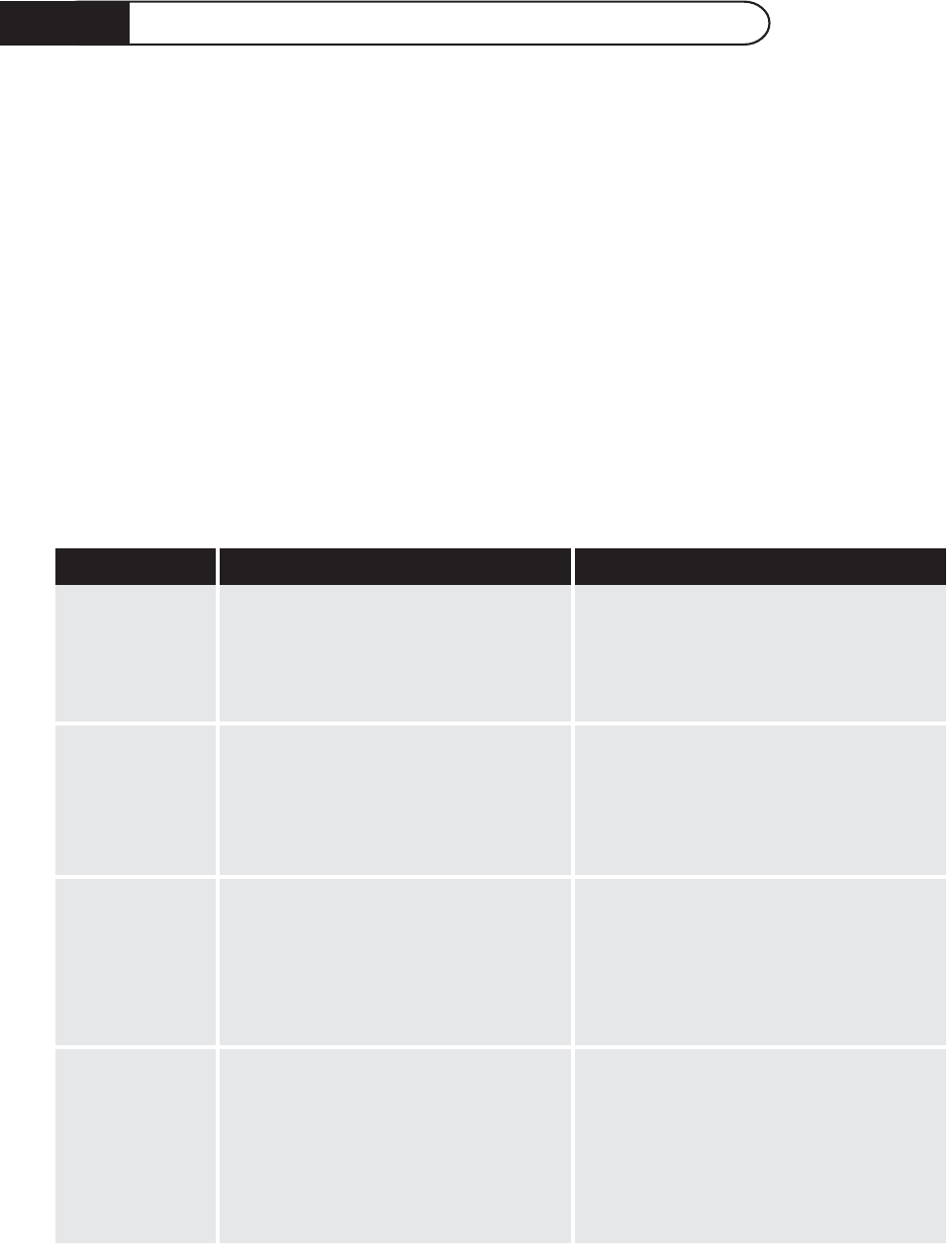
6
This Operation Manual is valuable: read it carefully and
always save it for reference.
A good microwave cookbook is a valuable asset.
Check it for microwave cooking principles, techniques,
hints and recipes.
NEVER use the oven without the turntable and support
nor turn the turntable over so that a large dish could
be placed in the oven. The turntable will turn both
clockwise and counterclockwise.
ALWAYS have food in the oven when it is on to absorb
the microwave energy.
When using the oven at power levels below 100%, you
may hear the magnetron cycling on and off. It is normal
for the exterior of the oven to be warm to the touch
when cooking or reheating.
Condensation is a normal part of microwave cooking.
Room humidity and the moisture in food will influence
the amount of moisture that condenses in the oven.
Generally, covered foods will not cause as much
condensation as uncovered ones. Vents on the oven
back must not be blocked.
The oven is for food preparation only. It should not be
used to dry clothes or newspapers.
Your oven is rated 1200 watts by using the IEC Test
Procedure. In using recipes or package directions,
check food a minute or two before the minimum time
and add time accordingly.
Information You Need To Know
ABOUT YOUR OVEN
Eggs, sausages,
nuts, seeds,
fruits &
vegetables
Popcorn
Baby food
General
ABOUT FOOD
• Cook eggs in shells.
• SENSOR REHEAT whole eggs.
• Dry nuts or seeds in shells.
• Pop popcorn in regular brown bags
or glass bowls.
• Exceed maximum time on popcorn
package.
• Heat disposable bottles.
• Heat bottles with nipples on.
• Heat baby food in original jars.
• Heat or cook in closed glass jars or
air tight containers.
• Can in the microwave as harmful
bacteria may not be destroyed.
• Deep fat fry.
• Dry wood, gourds, herbs or wet papers.
• Puncture egg yolks before cooking to
prevent “explosion”.
• Pierce skins of potatoes, apples,
squash, hot dogs and sausages so that
steam escapes.
• Use specially bagged popcorn for the mi-
crowave oven.
• Listen while popping corn for the popping
to slow to 1 or 2 seconds or use special
Popcorn pad.
• Transfer baby food to small dish and
heat carefully, stirring often. Check
temperature before serving.
• Put nipples on bottles after heating and
shake thoroughly. “Wrist” test before
feeding.
• Cut baked goods with filling after heat-
ing to release steam and avoid burns.
• Stir liquids briskly before and after
heating to avoid “eruption”.
• Use deep bowl, when cooking liquids or
cereals, to prevent boilovers.
DON'TFOOD DO
Untitled-1 6/9/04, 3:13 PM6



